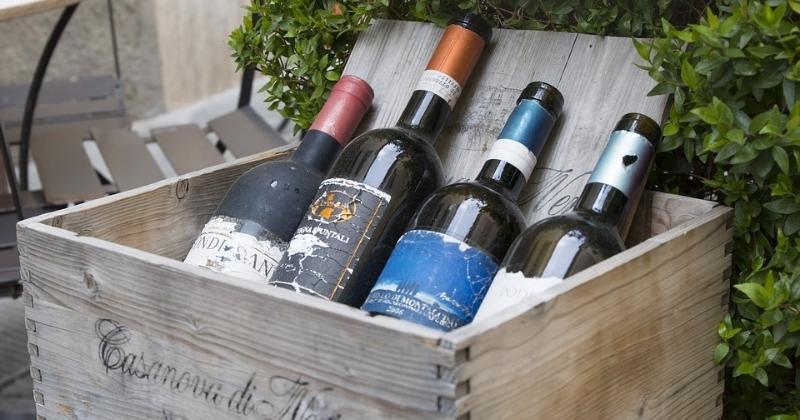By Emma Wilson, Contributing Writer
One would think that all wine is vegan, after all it’s a natural plant-derived beverage – aka fermented grape juice. And at face value, the process of making wine is fairly simple but it doesn’t always equate to vegan wine.
- Fresh grapes are harvested, cleaned, and turned into a pulpy mash.
- Water and yeast are added to the mixture, inducing fermentation.
- After fermentation, the wine is filtered.
- The wine is then aged in a wooden barrel to enhance the flavor before bottling.
So, how is it that a natural plant-derived beverage isn’t 100% vegan? It all has to do with a specific step of the filtration process, which is commonly called “fining.”
The Problem with Wine “Fining”
Although many wineries stick to their generations-old fining methods, some are embracing change and catering to the vegan community. Thankfully, there are a number of vegan-friendly fining agents that are being incorporated by some wineries, such as:
- Carbon
- Limestone
- Silica gel
- Plant proteins
- Clay
Regular wine filtration removes most of the larger debris in the wine, such as sticks, stems, leftover skin, wood residue, and other natural compounds. However, even filtered wine will still have a fine silt-like residue from micro-particles.
To remove these, wineries use an ages-old process known as fining. This involves adding animal-derived compounds such as egg whites, gelatine, or casein (a milk protein) to the filtered wine in order to remove trace particles. The fining agents can also improve the flavor of the wine by balancing the tannins, which are naturally-derived from grape skins and the barrel.

BONUS: Vegan Wine In Tuscany
Tuscany is everything that a wine tourist could ask for. Located in central Italy, Tuscany is home to some of the world’s best vineyards and wineries. It’s a region that seems almost entirely unaffected by the outside world. There are rolling green and gold hills as the eyes can see, old stone-built farms, hillside cottages, and Medieval-style villages.
If you’re trying to get away from the stress of life, step into a different realm, and enjoy some of the world’s greatest wine, there’s no better place. The only problem is that not all Tuscan wine is vegan. Many of the wineries use a refining process that involves animal by-products, thus making it unsuitable for vegans. Thankfully, there are also some vegan-friendly wineries in Tuscany. Some of the most notable vegan wineries in Tuscany include:
You can schedule a wine tour with a quick phone call or email to most of these wineries. (You must reserve at time for your wine tasting experience.) The tour will usually involve fresh Italian food and lots of wine tasting. Simply tell your guide that you will only be consuming vegan wine and food options, and they’ll be able to cater to your diet with no problem!
Tuscany is one of the most beautiful regions in the world and is known for its wine, food, and amazing culture. In addition to being a great place to find vegan wine, Tuscany is also well known for vegan-friendly cuisine and plant-based pasta dishes. So, you should have plenty of options to combine wonderful vegan wine and food together during your stay!
Emma Wilson is a health and wellness coach. For the past decade, she has helped people from around the world adopt a healthier lifestyle. She’s the creator of Vegan Calm and is passionate about food and travel.
